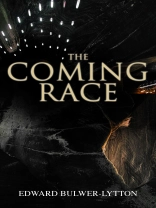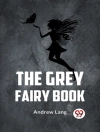The Coming Race centers on a young, independent and wealthy traveler who visits a friend, a mining engineer. They explore a natural chasm in a mine which has been exposed by an exploratory shaft. The traveler reaches the bottom of the chasm safely, but the rope breaks and his friend is killed. The traveler finds his way into a subterranean world occupied by beings who seem to resemble angels. He befriends the first being he meets, who guides him around a city that is reminiscent of ancient Egyptian architecture. The explorer meets his host’s wife, two sons and daughter who learn to speak English by way of a makeshift dictionary during which the narrator unconsciously teaches them the language. His guide comes towards him, and he and his daughter, Zee, explain who they are and how they function.
Sobre o autor
Edward Bulwer-Lytton (1803-1873) was an English novelist, poet, playwright and politician. He wrote in a variety of genres, including historical fiction, mystery, romance, the occult, and science fiction. Bulwer-Lytton’s literary works were highly popular and his bestselling novels earned him a large fortune.












